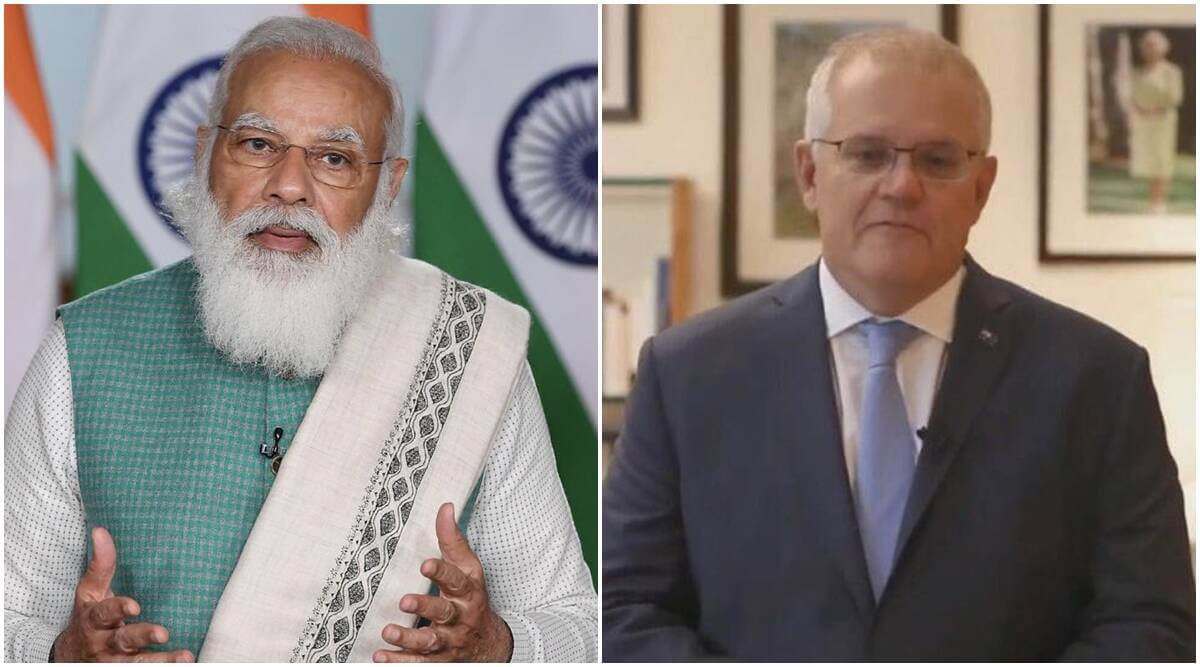United States
Indian External Affairs Minister S. Jaishankar spoke with the United States Global Task Force on Pandemic Relief on Thursday, wherein they discussed their “priorities (oxygen, vaccines, pharmaceuticals) and the importance of effective supply chains.” In this regard, they exchanged views on the global impact of a “stronger India-US health collaboration.” However, there was no official information on the exact outcomes of the discussions.
The Global Task Force is a joint initiative by the US-India Business Council, the US-India Strategic and Partnership Forum, and the Business Roundtable and was set up last week to assist India in curbing the second wave of the COVID-19 pandemic. It comprises 40 top American companies and its steering committee sees the participation of the CEOs of several of those, including Accenture, Amazon, Apple, Bank of America, and IBM. The platform helps the firms establish a unified approach to mobilising support and delivering medical equipment necessary for India’s fight against the pandemic. It also facilitates conversations with Indian and American officials to enhance information sharing.
Bhutan
On Monday, Indian Prime Minister Narendra Modi had a telephonic conversation with his Bhutanese counterpart, Dr. Lotay Tshering. The two discussed the COVID-19 pandemic, with Indian premier Narendra Modi applauding Tshering’s leadership during the crisis. Moreover, he said that the COVID-19 crisis also highlighted the “special friendship” between India and Bhutan, which he said is “anchored in mutual understanding and respect, shared cultural heritage, and strong people-to-people links.”
India is a crucial ally of Bhutan in the region. The countries are joint at the hip through their collaboration on foreign policy and defence. For instance, an Indian Military team trains the Royal Bhutan Army and the Royal Bodyguard of Bhutan. However, trade continues to be the strongest thread holding the two countries together. The India-Bhutan Trade and Transit Agreement of 1972 governs Bhutan’s trade relations with India and was renewed in 2016. The total value of goods traded between the two sides amounts to about Rs. 9,000 crore, with Indian products accounting for 84% of Bhutan’s imports. Meanwhile, 78% of goods exported from Bhutan are directed towards Indian markets. Further, goods worth Rs. 1,500 crore from several other countries, including Bangladesh, also come to Bhutan through West Bengal. Bhutan exports “traditional dresses and ornaments, honey, ginger and milk products” to India, and imports “vegetables, food grain, medicines, textiles and tea” from India.
Australia
Indian Prime Minister Narendra Modi spoke with his Australian counterpart Scott Morrison last Friday. During their telephonic conversation, Modi expressed his gratitude for Australia’s support in tackling the second wave of COVID-19 by expeditiously delivering medical equipment critical for the fight against the pandemic, which included oxygen concentrators, ventilators, and personal protective equipment.
The two leaders also spoke of the need to ensure widespread access to vaccines and medicines, which are necessary for the global fight against the pandemic. In this regard, the Indian premier urged his Australian counterpart to support India’s bid in the World Trade Organisation (WTO) for the waiver of intellectual rights protections for vaccines and medical equipment necessary for COVID-19 treatment.
According to a release by the Indian Ministry of External Affairs (MEA), the leaders also applauded the progress made in the India-Australia Comprehensive Strategic Partnership following the virtual summit held on June 4, 2020. During the meet, the two premiers had spoken about enhancing cooperation on a wide range of issues including defence, science, technology, and research, maritime cooperation for an open and inclusive Indo-Pacific, and counter-terrorism measures. During Friday’s discussion, Modi and Morrison spoke of further strengthening cooperation on these issues and bolstering “people-to-people ties.”
In addition, the leaders highlighted the need to further a “rules-based international order and a free, open, and inclusive Indo-Pacific.” This comes just days after the trade ministers of India, Japan, and Australia formally launched the Supply Chain Resilience Initiative (SCRI) in a virtual trilateral ministerial meeting. It was being speculated that the move, which has been in talks since last September, aims to counter Chinese supply chain dominance in the Indo-Pacific and reduce the trio’s dependence on Beijing by developing robust supply chains in the region. Moreover, over the past year, India and Australia have enhanced their cooperation in the Indo-Pacific, specifically targeting China’s growing aggressive activities in the region.
Colombia
On the same day, India and Colombia conducted the Ninth Foreign Office Consultations in a virtual format. While the Indian side was represented by Ganguly Das, Secretary (East), Francisco Javier Echeverri, Vice Minister, Foreign Affairs of the Ministry of Foreign Affairs led the Colombian side.
A statement published by the Indian Ministry of External Affairs (MEA) said that the discussions, which were being conducted after a four-year hiatus, allowed the two sides to conduct a “comprehensive review” of several issues of mutual concern, including “political, trade and economic cooperation, agriculture, space, energy, health and pharmaceuticals, tourism, information technology, education, development partnership, sports, and culture”. In addition, they discussed regional and international issues, which included cooperation in the United Nations (UN). In this regard, they agreed to work closely to further multilateral issues of mutual interest.
India and Colombia established their diplomatic relations in 1959. The two also have several bilateral agreements and memorandums of understanding in place on issues including defence, trade, science and technology, and tourism. Over the years, they have also strengthened their trade relations, with their bilateral trade amounting to $2.1 billion in 2018, despite a slight decline following the slump in oil prices in 2015 that impacted Colombia’s oil exports.
Indian Diplomacy: Weekly Round-Up (7-14 May, 2021)
This week, Indian authorities convened several meetings with officials from Bhutan, Australia, and the United States, amongst others.
May 14, 2021

Indian Prime Minister Narendra Modi and his Australian counterpart Scott Morrison. SOURCE: TWITTER
